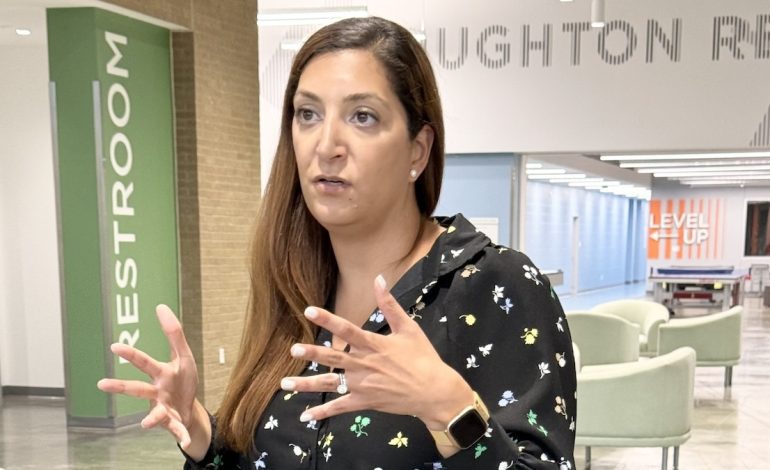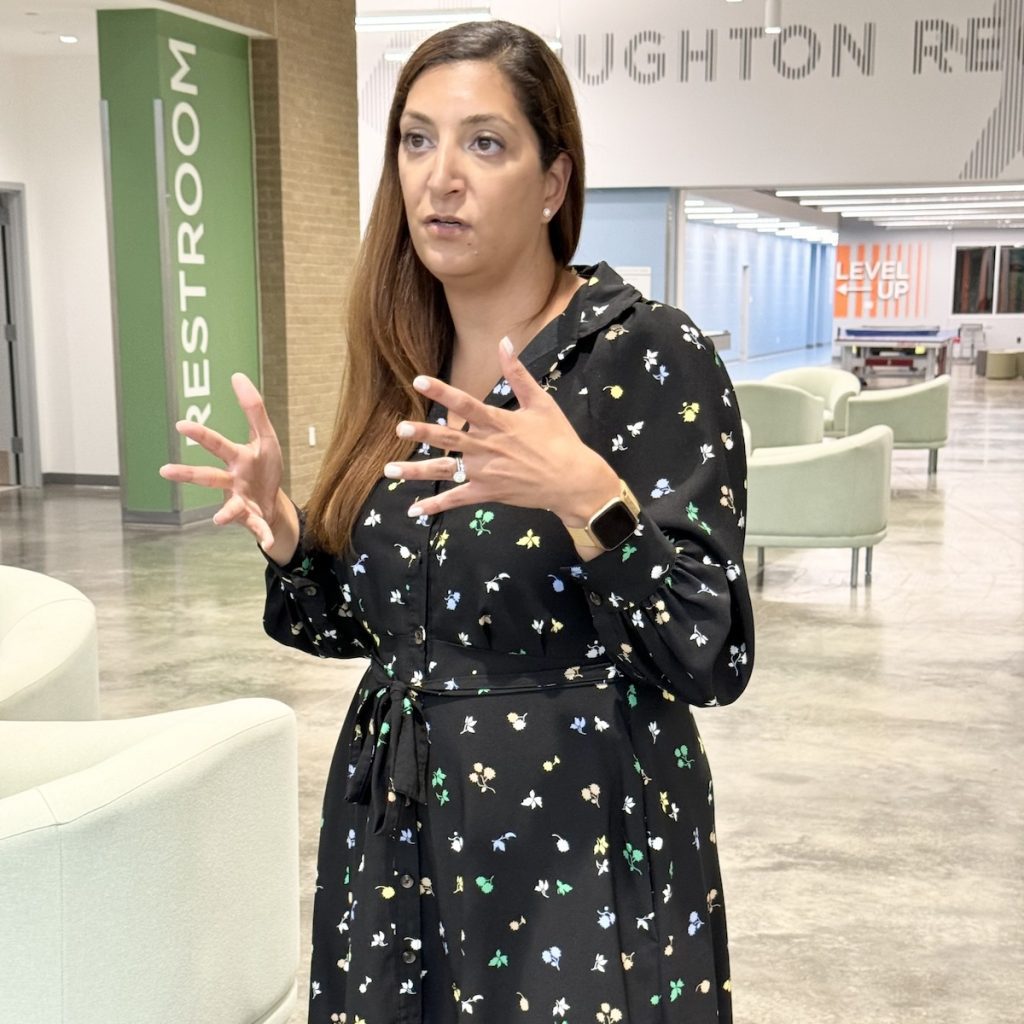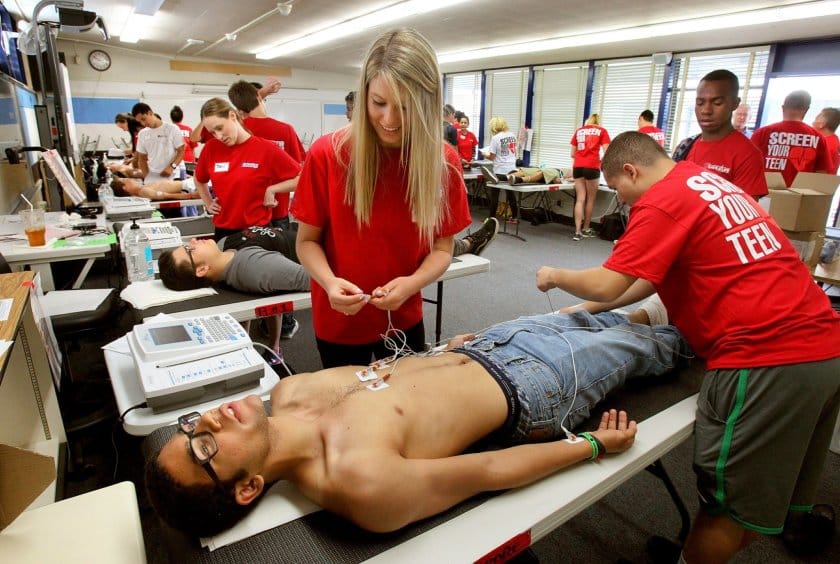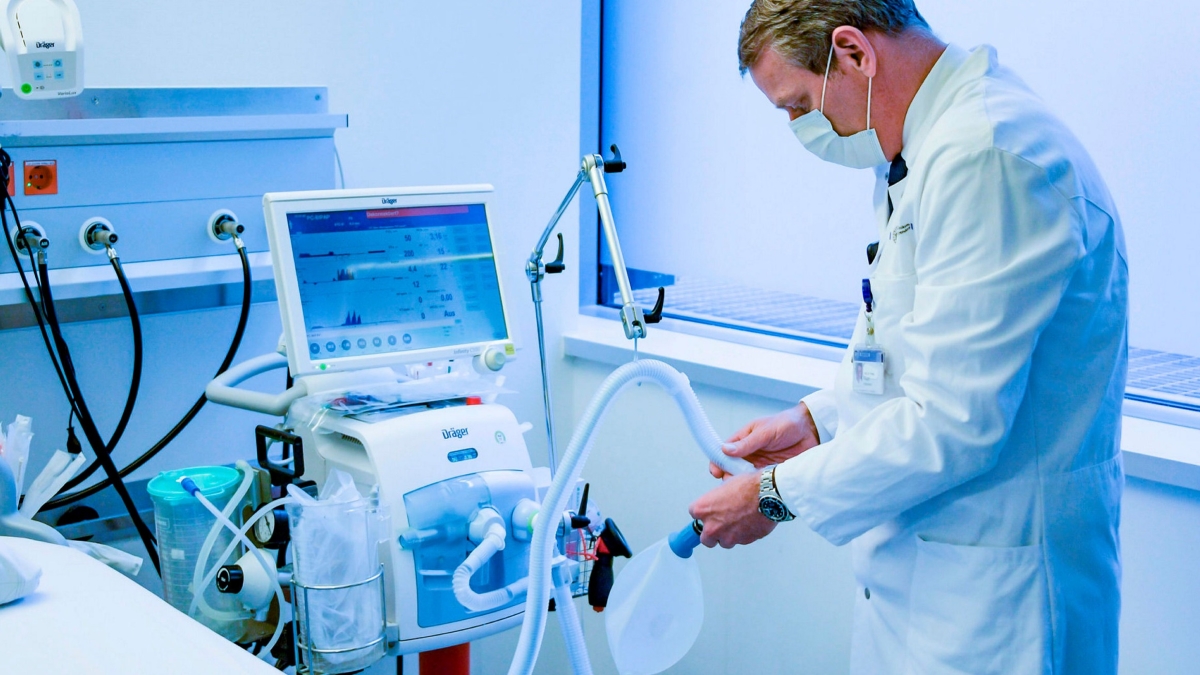
Dodging The Big C
Black and Indigenous individuals have the highest overall cancer death rates of all US racial or ethnic groups.
American Association for Cancer Research

Community members gather with Dr. Scherezade K. Mama (second from right).
By Joycelyne Fadojutimi
“Black and Indigenous individuals have the highest overall cancer death rates of all US racial or ethnic groups,” American Association for Cancer Research (AACR) has noted.
The medical community’s response is clear and critical:
“Our goal is to help people live healthier lives and reduce their risk of cancer,” says Assistant Professor of the Houston-based University of Texas MD Anderson Cancer Center Dr. Scherezade K. Mama.
The AACR’s Cancer Disparities Progress Report for 2024 emphasizes fields in which there have been recent advances in explaining and addressing the incidence of cancer clusters along ethnic, age, sexual orientation, sex, socioeconomic and geographic lines. This report also urges increased and additional research to address these disparities.
Addressing Cancer Disparities
AACR notes, “Racial and ethnic minority population groups in the United States have long experienced cancer disparities. As one striking example, although the overall cancer incidence rates among Black and American Indian or Alaska Native (AI/AN) people are lower compared to the White population, Black and Indigenous individuals have the highest overall cancer death rates of all US racial or ethnic groups.
“Alarming disparities also exist for sexual or gender minority (SGM) populations, individuals residing in rural areas, and/or those living under persistent poverty.”
But wait, that is not all.
Health inequalities, including cancer disparities, adversely impact racial and ethnic minorities and medically underserved populations. These disparities AACR says, “Have stemmed from a long history of structural racism and contemporary injustices in the US and continue to have lasting, multigenerational adverse effects on marginalized populations in all aspects of life, including on health outcomes.”
In order to understand and address influences that determine health outcomes and contribute to cancer disparities, researchers have proposed many frameworks that are based on a complex network of interrelated factors, called social drivers of health (SDOH), also referred to as social determinants of health.
According to National Cancer Institute, (NCI), SDOH are the social, economic, and physical conditions in the places where people are born and where they live, learn, work, play, and get older that can affect their health, well-being, and quality of life.
Social drivers of health include factors such as education level; income; employment; housing; transportation; and access to healthy food, clean air, water, and health care services.
The interplay between SDOH, biological, and environmental factors impacts all aspects of a person’s lived experiences, including health outcomes across the lifespan.
For these reasons, City of Longview (Parks Department) will be partnering with Harmony Health (HH) project on a new cancer prevention initiative.
Scherezade K. Mama, Dr.PH, Assistant Professor, Department of Health Disparities Research, The University of Texas MD Anderson Cancer Center in Houston, Texas will oversee this initiative. In addition, she serves as adjoint assistant professor of the department of medicine, division school of medicine for the University of Texas at Tyler.
Mama is clear on how being psychosocially healthy and well-adjusted impacts physical well-being. Populations that are underserved in these areas suffer the highest incidence of ongoing stresses, which worsen their health in general.
“It’s not always that people are not aware, but sometimes they just don’t know what to do about it or may not have the resources and support to do something about it,” she says.


Dr. Scherezade K. Mama is Assistant Professor of the Houston-based University of Texas MD Anderson Cancer Center.
Mama does not believe there is a single answer that addresses all societal and psychological distress. Both chronic problems persisting over a lengthy period of time and acute, one-time occurrences can negatively influence mental and physical well-being. One positive response is being physically active.
Dealing With Stress
“You not only reduce stress as you’re exercising, but it helps reduce inflammation, which is the damage chronic stress causes to your body and puts you at a greater risk of cancer, heart disease and other chronic health conditions,” she says. “My answer would be to move more and sit less.”
About Harmony And Health
Harmony & Health is geared to uplifting physical and psychosocial health in black adults who are at the greatest risk for cancer and chronic health problems in general. Information and various topics for a healthy life are available and crucial.
“Our goal is to help people live healthier lives and reduce their risk of cancer,” says Mama.
For additional information please call program coordinator Dereck Reeves at (281) 793-2631. Additional information is available at (713) 792-9400 or by emailing HarmonyHealth@MDAnderson.org.
For more information on Cancer Progress Report, please visit: https://cancerprogressreport.aacr.org/disparities/cdpr24-contents/cdpr24-a-message-from-aacr/





